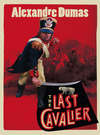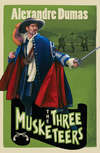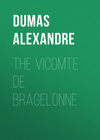Loe raamatut: «The Mesmerist's Victim», lehekülg 7
CHAPTER XV
THE ROAD TO PREMIERSHIP IS NOT STREWN WITH ROSES
WHILE all these petty plots were going on at Trianon amid the trees and flowers, making things lively for the people of that trifling world, the vast plots of the capital, threatening tempests, were unfolding their black wings over the Temple of Themis, as they said in those high-flown days.
The Parliaments, degenerate remnant of old French opposition to royalty, had recovered the art of hating under the capricious reign of Louis XV., and since they felt danger impending when their shield, Choiseul, was removed, they prepared to conjure it away.
The appointment of the Duke of Aiguillon, ex-Governor of Brittany, to the command of the Light Cavalry, thanks to Lady Dubarry’s influence over the King, was, to quote Jean Dubarry, “a smack in the face” for the Third Estate, from Feudality.
How would they take it?
Lawyers and politicians were keen-sighted gentlemen and where most folks are perplexed, they see clearly.
They resolved: “The Parliamentary Court will deliberate on the conduct of the ex-Governor of Brittany and give its opinion.”
The King parried this thrust by intimating to the peers and princes that they must not go to the Parliament session to take part in the discussion, as far as Duke Aiguillon was concerned.
Already unpopular, the Duke of Aiguillon was discouraged and sat in a state of torpor at the impending overthrow when his uncle, the Duke of Richelieu, was announced. He ran to welcome him with all the more eagerness as he had been trying to meet him lately without the old fox being discoverable.
“Uncle,” he began when he had cornered the other in an armchair so he could not retreat, “is it true that you, the wittiest man in France could not see that I should be as selfish for us two as for myself alone? you have been shunning me when I most have need of you.”
“Upon honor, I do not understand you.”
“I will in that case make all clear. The King was not inclined to make you Prime Minister vice Choiseul banished, and he did make me commander of the Light Cavalry, so that you suppose I sold you to get my reward.”
“If I failed, you have won, and that is enough for the house of Richelieu. You have nothing to grumble about for you are high in favor and in six months will be ruler. Suppose I am the dog who snapped at the shadow of the meat – and letting the meat drop, sees another run away with it. I have learnt a lesson – but the meat is ours all the same. But what do I hear?”
“Nothing uncle; pray go on.”
“But it is a carriage – I am in the way.”
“No, no, go on for I love fables – ”
“Nay, it may be the appointment as minister – the meat! the little countess – ”
“She heartily loves you, uncle – ”
“Well she has been working for you in camera– ”
The servant entered.
“A deputation from Parliament,” he said with some trepidation.
“What did I tell you?” sneered the old noble.
“A Parliamentary deputation here?” queried the younger duke, far from encouraged by the other’s smile. “What can they want with me?”
“In the King’s name!” thundered a sonorous voice at the end of the anteroom.
“Whew!” muttered Richelieu.
Aiguillon rose, quite pale, and went to show in two members of Parliament, behind whom appeared two impassive ushers while at a distance a legion of frightened servants appeared.
Bowing to the duke, whom they officially recognized, the spokesman of the gentlemen of the Commission read a paper in a loud voice. It was the complete, particularised, circumstantial declaration that the Duke of Aiguillon was gravely inculpated and tainted with suspicions, moreover, guilty of deeds befouling his honor and that he was suspended in his functions as peer of France. The duke heard the reading like a man struck with lightning might listen to the thunder. He moved no more than a statue on its pedestal, and did not even put out his hand to take the document from the official of the Parliament. It was the marshal, standing up, alert and clear-headed, who took it, and returned the bow to the bearer. The Commission members were far while the duke remained in stupor.
“This is a heavy blow!” remarked Richelieu; “no longer a peer of the realm – it is humiliating.”
The victim turned round as if only now restored to life.
“Did you not expect it?” asked the elder.
“Did you, uncle?” was the retort.
“How could anybody suspect that Parliament would so smartly rap the favorite of the King and of the King’s favorite? these fellows will get themselves ground to powder.”
The duke sank into a seat, with his hand on his burning cheek.
“If they do such a thing because you are made commander of the Light Cavalry,” continued the old marshal, turning the dagger in the wound, “they will condemn you to be burnt at the stake when you are appointed Premier. These fellows hate you, Aiguillon; better distrust them.”
The duke bore this untimely joking with heroic constancy; his misfortune magnified him and purified his spirit. But the other took it for insensibility or even want of intelligence, perhaps, and thought that he had not stung deeply enough.
“However, being no longer a peer, you will be exposed to the long bills of these blackbirds,” he proceeded; “take refuge in obscurity for a few years. Besides, this safeguard, obscurity, will help you without your imagining it. Unpropped by your title, you will more grandly become the minister, because with more effort. Lady Dubarry will do more for you thus disarmed, for she wears you in her heart – and is a solid supporter.”
Aiguillon rose without shooting at the jester one angry look for all the suffering he inflicted.
“You are right, uncle,” he said, tranquilly, “and your wisdom shows in the last piece of advice. Lady Dubarry will defend me – she, to whom you introduced me and to whom you recommended me so warmly. Thank God! she likes me. She is brave and has full power over the King’s mind. I thank you, uncle, for your hint, and I shall hie to her residence at Luciennes as to a haven of safety. What, ho there! my horses to be put to the carriage.”
The marshal was sorely puzzled but he had some consolation when at evening he saw the delight of the Parisians on reading the posters proclaiming the disgrace of Aiguillon.
“Do you think, Rafté, that the duke will get out of this scrape?” asked the old intriguer of his valet and confidential man, who rather deserved the name of Crafty.
He had been forty years in his service.
“The King will.”
“Oh, the King will always have a loophole. But the King has nothing to do with this case.”
“Why, my lord, if the King can get through, Lady Dubarry will follow, and lead my lord of Aiguillon with her.”
“You do not understand politics, Rafté.”
Rafté was as keen as his master.
“Well, my lord, our lawyer, Flageot, who is member of Parliament, he thinks the King will not get out of it.”
“Who will net the lion?”
“The rat, instead of helping him out.”
“Oh, is Flageot the rat?”
“He says so. I always believe a lawyer when he promises anything unkind.”
“We must look into the Flageot method, then, Rafté. But let me have something to eat before I go to sleep. It has upset me to see my poor nephew unmade peer of France and his chances of the Prime-Minister-ship knocked on the head. An uncle naturally feels for his nephew, eh?”
From sighing he set to laughing.
“You would have made as good a minister yourself,” said Rafté.
On the morrow of the day when the terrible Parliamentary decree filled Paris and Versailles with noise, and all were in expectation of the next step, Richelieu returned to Versailles and carrying on his ordinary court life, saw his man Rafté enter with a letter which seemed to fill him with disquietude participated in by his master.
“The King is good,” said the duke after opening the letter and smiling though he had frowned at the start. “He appoints Aiguillon Prime Minister.”
Thus ran the letter:
“MY DEAR UNCLE: Your kind advice has borne fruit. I confided my chagrin to that excellent friend of our house, Lady Dubarry, who was good enough to repeat the confidence to his Majesty. The King is indignant at the rudeness done me by the Parliamentary gentry, after my having so faithfully employed myself in his service. In his State Council this day, he has cancelled the decree and bids me continue in my place as peer and duke. I know the pleasure this news will give you, my dear uncle. You have the news before anybody else in the world. Believe in my tender respect, my dear uncle, and continue your good graces and good advice to your affectionate
AIGUILLON.”
“He pokes fun at me into the bargain,” said the reader. “The idea of the King jumping into this hornet’ nest!”
“You would not believe me yesterday saying so.”
“I said that he would get out of it. You see he does.”
“In fact, Parliament is beaten.”
“So am I. And forever. I must pay the forfeit. You do not understand how grating on me will be the laughs at Luciennes. The duke is there now, laughing at me in chorus with La Dubarry, Jean and Chon, while the black boy snaps his fingers at me over the candy I gave him. ‘Odsboddikins!’ I have a soft heart, but this makes me furious.”
“Then you should not have acted as you did, my lord.”
“You goaded me on.”
“I? what do I care whether the Duke of Aiguillon is or is not a peer of France? Man of brains though you are, your grace makes blunders that I would not forgive in a low-bred fellow like me.”
“Explain, my old Rafté, and I will own if I am wrong.”
“You wanted to be revenged yesterday, did you not? you aimed to humble your nephew because he was likely to be the Premier instead of your grace – well, such revenge costs dear. But you are rich and can afford to pay.”
“What would you have done in my place, you knowing dog?”
“Nothing; you could not but show your spite because the Dubarry woman thought your nephew was younger than yourself.”
A growl from the old marshal was all the comment.
“Parliament was egged on by you to do what it has done; knowing the decree would be issued, you offered your services to your unsuspecting nephew.”
“I admit I was wrong. You ought to have given me a warning.”
“I, prevent you doing ill? you are always saying that I am of your making and I should be little after your model if I was not joyful at your making a mistake, or bringing about evil.”
“Oh, you think evil will come of it?”
“Certainly; you are obstinate and will keep open the breach – Aiguillon will be the bridge between Dubarry and Parliament on which all the fighting will take place. After he shall have been very well trampled upon, he will suffer the fate of used-up wood – they will cast him away into the lumber-room – that is, into the Bastile. He will be minister first, but you will be exiled all the same.”
“Bastile?” repeated Richelieu, shrugging his shoulders so sharply that he spilt half his snuff on the carpet. “Is our Louis the Fourteenth one?”
“No; but Lady Dubarry, with Aiguillon to back her, is up to the mark of Lady Maintenon. Beware! at present I do not know any princesses who will take you green goslings and sweetmeats when you lie in prison.”
“Pretty prognostics, these!” said the duke after a long silence. “You read the future, do you? what about the present?”
“Your grace is too wise for me to offer advice.”
“You knave, are you still poking fun at me?”
“Mind, my lord, a man is not a knave after forty, and I am sixty-seven.”
“If not a knave you are your own counsel – be mine.”
“If the King’s act is not known yet, why not let the President of Parliament have the duke’s letter and the royal decree in Council? Wait till the Parliament has debated on them, and then go and see your lawyer, Flageot. As he is your grace’s lawyer he must have some case of ours in hand. Ask him about it and learn how things stand.”
“But seeing the family lawyer is your province, Master Rafté.”
“Nay, that was all very well when Flageot was a simple ‘paper-stainer,’ but henceforth Flageot is an Attila, a scourge of kings, and only a duke and peer of France can talk to the likes of him.”
“Are you serious or having a jest?”
“To-morrow it will be serious, my lord.”
CHAPTER XVI
THE ENDLESS LAW SUIT
IT is not hard to guess what the dainty duke suffered in passing through the dirty and nauseating Paris of his era to reach the foul hole among ill-kempt houses which was called a street.
Before Flageot’s door the way for the ducal coach was stopped by another vehicle. He perceived a female’s headdress coming out of it, and as his seventy-five years had not rebuffed him in his reputation as a lover of the ladies, he hastened to wade through the mud to offer his arm to the lady who was stepping out unassisted.
He was not in luck: for the foot was the bony one of an old dame. Wrinkled face, the tan showing under a thick layer of rouge, proved that she was not merely old but decrepit.
But the marshal could not draw back: besides he was no chicken himself. The client – she must have been a client to be at this door – did not hesitate like he did: she put her paw with a horrible grin in the duke’s hand.
“I have seen this Gorgon’s head somewhere before,” he thought.
“Going to call on Flageot?” he inquired.
“Yes, your grace.”
“Oh, have I the honor of being known to you?” he exclaimed, disagreeably surprised as he stopped at the opening of the park passage.
“There is no woman who does not know the Duke of Richelieu,” was the reply.
“This baboon flatters herself that she is a woman,” muttered the Victor at Mahon: but he saluted with the utmost grace, saying aloud: “May I venture to ask to whom I have the honor of speaking?”
“I am your servant, the Countess of Bearn,” replied the old lady, making a court reverence on the miry planks of the alley, three paces from a sort of open trapdoor in which the marshal expected to see her tumble when she got to the third courtsey.
“Enchanted to hear it, my lady,” he responded. “So your ladyship has some law business on hand?”
“Law business, indeed! it is only one suit, but you must have heard about it as it is so long in the courts – my defense against the claim of the Saluce Brothers.”
“Of course! there is a popular song about it – it is sung to the tune of ‘the Bourbon Lass;’ and runs some way thus —
“‘My lady countess, how I want
Your help, which I should ever vaunt,
For I am in a stew’
“You understand that is Lady Dubarry who sings. It is saucy to her, but these ballad-mongers respect nobody. Lord, how greasy this rope for a handrail is! Then you reply as follows:
“‘A lady old and obstinate,
Unsettled lawsuits are my fate,
To win I must rely on you.’”
“How shocking, my lord,” said the countess, who was a descendant of the house of Bearn and Navarre which gave Henry IV as King to France: “how dare they thus insult a woman of quality?”
“Excuse my singing out of tune, but this staircase puts me in a heat. Ah, we have reached his door. Let me pull the bell.”
The old dame let the duke pass her, but grumbled. He rang and Madame Flageot, the lawyer’s daughter as well as lawyer’s wife, did not think it beneath her to open the door. Introduced into the office a furious man was seen with a pen in his hand which he flourished, dictating to his principal clerk.
“Good heavens, what are you doing, Master Flageot?” asked the old countess whose voice made the proctor turn round.
“Oh, your ladyship’s most faithful! A chair for the Countess of Bearn. And the Duke of Richelieu, if my eyes do not deceive me. Another seat, Bernardet, for my Lord of Richelieu.”
“How is my suit going on,” inquired the lady.
“Fine, my lady, I was just busy on your behalf, and it will make a noise now, I can tell you.”
“If you have my action in motion, then you can attend to my lord duke.”
“If you please.”
“Well, you must know what brought me – ”
“The papers M. Rafté brought from your lordship? It is put off indefinitely, at least it may be a year before the case comes up in the courts.”
“Eh, I should like to know the reasons?”
“Circumstances, my lord. The King having cancelled the Parliamentary decree about Duke Aiguillon, we reply by ‘burning our ships.’”
“I did not know you Parliament gentlemen had any ships.”
“Both Houses have refused to proceed with any cases before the courts until the King withdraws Lord Aiguillon.”
“You don’t say so?” exclaimed Richelieu.
“What, they won’t try my case?” said Lady Bearn with a terror she did not try to dissimulate. “This is iniquitous – rebellion to our Lord the King!”
“My lady, the King forgets himself – and we forget our duty too,” rejoined the lawyer loftily.
“You will be lugged into the Bastile.”
“I shall go, singing, and my colleagues will escort me, bearing palms.”
“The man is mad,” said the lady to the nobleman.
“We are all of a feather,” continued the proctor.
“This is curious,” observed the marshal.
“But you said you were attending to my suit,” protested the lady.
“And so I was. Yours is the first example I cite among the cases which will be suspended by our action – or, rather, inaction – he he! Here is the very paragraph concerning your ladyship.”
Snatching from his clerk the sheet of paper on which he was writing, he read with emphasis:
“ – ‘Their estate lost, fortune compromised, and their duties trodden under foot. His Majesty may imagine what such will suffer. For instance, the dependent must hold inert in his hands an important affair on which depends the fortune of one of the first families of the kingdom: by his care, industry and I make so bold as to say his talent, he was bringing this matter at length – great length – to a brilliant close, and the rights of the most high and powerful lady Angelique Charlotte Veronique de Bearn, were just going to be acknowledged and proclaimed when the breath of Discord – ’ I stopped at the breath, my lady; the figure of speech was so fine – ” said the proctor.
“Master Flageot,” said the old litigant, “forty years ago I selected your father to be my lawyer, a worthy gentleman: I continued you in the matter; in which you have made some ten or twelve thousand a-year and might be making more – ”
“Write that down,” interrupted the legal gentleman: “it is a proof, an item of testimony – it shall be inserted in the appendix of supporting documents.”
“Stay,” went on the countess: “I withdraw my papers; henceforth you lose my trust.”
This disgrace struck the lawyer like a thunderbolt: recovering from the stupefaction, he raised his eyes like a martyr ready for the golden chariot to mount to heaven, and said:
“Be it so. Bernardet, give the lady her documents and register this fact, that the petitioner preferred his conscience to his fees.”
“I beg your ladyship’s pardon,” interposed Richelieu, “but it is useless to withdraw your papers, for this worthy practitioner’s legal brethren, I take it, will not accept the case. He is not so dull as to be the only one to protest and lose his business. As for me, I declare Master Flageot a very honest lawyer, in whose box my papers are as safe as in my own. So here I leave them, paying the fees just the same as though the case was up for trial.”
“How right they are who say that your lordship is generous and liberal!” burst forth the proctor; “I shall propagate your lordship’s fame.”
Richelieu bowed as though overwhelmed.
“Bernardet,” cried the enthusiastic lawyer, “in the peroration, insert the eulogium of the Duke of Richelieu.”
“No, never! I like to do good deeds by stealth, sir. Do not disoblige me, my master, or I should deny it – I would give you the lie, sir – my modesty is so touchy. Come, countess, what say you?”
“That my case ought to be tried and it shall have a hearing.”
“It will not be tried unless the King sends his army and all the great guns into the courtroom,” replied the proctor.
“Do you not think that the King will wriggle out of this bag,” asked Richelieu of the proctor in a whisper.
“Impossible. A country without courts going on is a land without daily bread.”
“But this will anger the King.”
“We have screwed up our minds to anything – prison, death. A man may wear a black gown, but a heart can be under it.” And he thumped his chest.
“This is a black lookout for the cabinet,” said the duke to his fellow-client. “It seems to me that you might apply to your presentee at court, Lady Dubarry, who is perhaps powerful enough to open this deadlock.”
“Thanks, you give me the idea of going to her country house, and she shall tell the King that this stoppage of legal business will not suit me, whom she has reasons to oblige. His Majesty will speak to the Lord High Chancellor and he has a long arm. Master Flageot, please to refresh your mind with my case, for it will soon be coming up, I warrant you.”
Flageot turned his head with incredulity not remarked by the willful old dame.
“Since you will go to Luciennes,” suggested Richelieu, “you might convey my compliments. We are companions in affliction since my law case will not be tried. Besides you can testify to the displeasure these pettifoggers are causing me; and you might kindly add that it was at my hint that your ladyship thought of taking this clever step. Do me the honor to accept my hand as far as your carriage. Adieu, Master Flageot, I leave you to your petition.”
“Rafté was right,” mused the duke when by himself. “These Flageots are going to make a revolution. However, God be thanked. I am carrying water on both shoulders! I am for the court and of the Parliamentarians. Lady Dubarry will plunge into politics and get drowned. Decidedly, this Rafté is a good scholar of mine and I will make him my Chief Secretary when I am Premier.”
Lady Bearn profited literally by the duke’s advice so that, in two hours and a half, she was dancing attendance at Luciennes, in company with Lady Dubarry’s pet page, the black boy Zamore.
Her name raised some curiosity in the Countess’s boudoir, as it was well-known from her having been sponsor at the presentation of the favorite to the court. No other lady of title would do this office and she only accepted the shameful mission of go-between on her own conditions. Duke Aiguillon was plotting with the favorite when Chon asked a hearing for Countess Bearn.
“I should like you to stay by,” said she to the duke, “in case the old beggar tries for a loan. You will be useful as she will ask for less.”
Lady Bearn, with her face drawn down to suit the disaster, took the armchair in front of her hostess and began:
“A great misfortune brings me, news which will much afflict his Majesty – these Parliamentarians – ”
“This is the Duke of Aiguillon,” Lady Dubarry hastened to say as he groaned, for fear of something awkward being said.
But the old dame was not one to make blunders; she hastened to proceed:
“I know the turpitude of these crows, and their lack of respect for merit and birth.”
This blunt compliment to the duke earned his handsome bow for the litigant, who rose and returned it before she went on:
“But it is no longer his grace to whom they do harm, but to all the people. They will let no cases be tried.”
“Tush, no more law-dealing in France,” said Jeanne Dubarry; “What difference will that make?”
The duke smiled, but the old hag, instead of taking things pleasantly, looked as morose as possible.
“It is a great woe, but it is plain that your ladyship has no trials on the board.”
“I see, and I remember that you have an important suit.”
“To which delay is dangerous.”
“Poor lady!”
“The King will have to do something.”
“Oh, he will exile the judges.”
“That will adjourn the trials indefinitely.”
“If you know of any remedy, my lady, I wish you would kindly state it.”
“There is one way,” remarked Aiguillon, “but the King may not like to use it. It is the ordinary resource of royalty when the other branches of the ruling powers are burdensome. The King says, ‘I will have it so!’ whether the opponents say they will not or the other thing.”
“Excellent plan,” exclaimed Lady Bearn with enthusiasm. “Oh, my lady, if you who can influence the King, would get him to say: ‘I will have Lady Bearn’s case tried!’ it would be realizing what you promised long ago.”
Aiguillon bit his lip, bowed and quitted the boudoir, for he heard a coach and he thought it was the royal one.
“Here comes the King,” said the hostess, rising to dismiss the pleader.
“Oh, won’t your ladyship let me throw myself at the royal feet to – ”
“Ask for a special court to try the case? I am most willing,” replied the countess quickly. “Stay here and have your wish.”
Lady Bearn had hardly adjusted her headdress before the sovereign entered.
“Ha, you have visitors?” he exclaimed.
“It is my Lady Bearn,” said the other lady.
“Sire, I crave for justice,” squeaked the old dame, making a low courtsey. “Against the Parliament, which will do no acts of justice. Your Majesty, I beg for a special tribunal.”
“A royal special court?” said the monarch. “Why, this is almost a revolution, my lady.”
“It is the means to curb these rebels of whom you are the master. Your Majesty knows that they have no right to reply if you say ‘I will do this.’”
“The idea is grand,” said Lady Dubarry.
“Grand, yes; but not good,” responded the King.
“It would be a splendid ceremony – the King going in state to open the special court royal, with all the peers and ladies in the train, and he so glorious in the ermine-lined mantle, the royal diamonds in the crown, and the gold sceptre carried before him – all the lustre beseeming your Majesty’s handsome and august countenance.”
“Do you think so?” asked the King, wavering. “It is a fact that such a sight has not been seen for a long time,” he added with affected unconcern. “I will see about it next time the Parliaments do anything vexatious.”
“They have done it, Sire,” interposed La Dubarry. “The pests have determined to hold no more law courts until your Majesty lets them have their own way.”
“Mere rumors.”
“Please your Majesty, my proctor returned me the brief and papers in my case because there would be no trial for ever so long.”
“Mere scarecrows, I tell you.”
Zamore scratched at the door, that being the way to knock when royalty is in a room, and brought a letter.
Lord High Chancellor Maupeou, hearing where the King was, solicited an interview through the countess’s good graces.
“You may stay,” said the King to Lady Bearn. “Good morning, my lord – what is the news?”
“Sire, the Parliament which annoyed your Majesty is no more. The members wish to resign and have handed in their applications to be relieved all together.”
“I told you this was a serious dilemma,” whispered the young countess to her royal lover.
“Very serious,” said Louis, with impatience. “Exile the pack, Maupeou!”
“But they will hold no law courts in exile, Sire.”
“Chancellor,” observed the ruler, gravely; “Law must be dealt out and I see no means but the efficacious if solemn one: I will hold a royal and special tribunal. Those gentry shall tremble for once.”
“Sire, you are the greatest King in the whole world!”
“Yes, indeed,” cried the chancellor, Chon and her fortunate sister like an echo.
“That is more than the whole world says, though,” muttered the King.




















